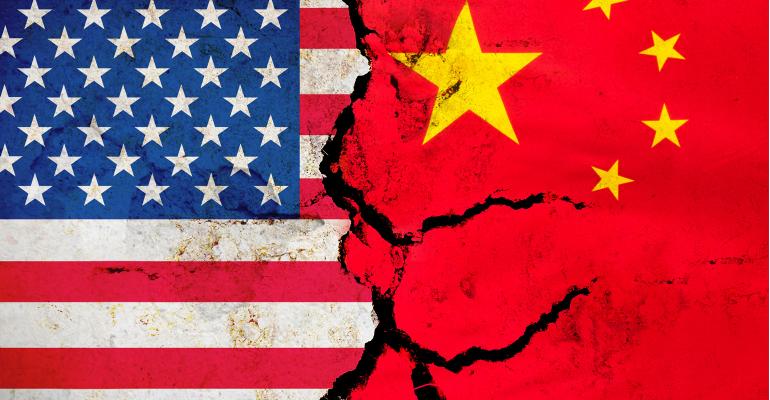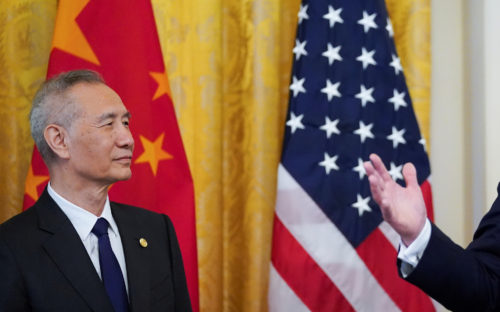Trade war, day 40: ‘Zero-sum’ is the word

For at least half a year now, China has regularly warned Donald Trump against taking a zero-sum view of U.S.-China trade. Last Friday, the Communist Party’s house newspaper, the People’s Daily, seemed to admit that the effort was futile. It complained (in Chinese) — among other things, which you can read about in The China Project Access — of a “zero-sum mentality” in the U.S., and that “no matter what China does, in the eyes of the United States, China’s development has already ‘damaged the supremacy of the United States.’”
That’s partially right, as far as Trump, and the anger in America that he channels, is concerned. But the “zero-sum” accusation goes both ways.
- “Americans felt that at least some of China’s success had come at their expense,” former commerce secretary Penny Pritzker writes in Bloomberg (paywall), and Trump is simply the first national politician to capitalize on that anger and actually carry through with aggressive policies toward China after being elected.
- “For years, Americans were told that China was a developing country and shouldn’t necessarily be held to the same standard as developed nations such as the U.S.” — and this blunted criticism of China’s economic policy when it violated WTO rules and protected and subsidized its domestic market. But “China’s success had severely undercut that line of reasoning,” and “disconnect between words and reality [helped give] Trump his political resonance in the U.S.”
- “If China doesn’t change its approach to economic competition, I fear that today’s trade war will be nothing compared to the heightened tensions to come. Frankly, our domestic political system will demand action and President Trump will look like the mild first incarnation of a trend rather than an outlier,” Pritzker concludes.
- Abigail Grace, who helped craft policy toward China as part of the National Security Council as recently as half a year ago, writes in Foreign Policy (paywall), “The root of this problem is not the [trade] deficit, but China’s deeply held belief that it is not beholden to the same rules as other nations.”
- “Beijing’s zero-sum view of technological development” — by which Grace is referring, in part, to the Made in China 2025 initiative — is “likely to impair others seeking to climb the same ladder.” But “China remains committed to its own economic agenda because it believes that achieving technological supremacy today will enable it to write tomorrow’s rules.”
The Chinese Foreign Ministry today also accused the U.S. of a “zero-sum game mindset” in another area of policy: Taiwan. Read the ministry’s whole statement here.
- This is in response to the signing of the National Defence Authorisation Act (NDAA), a $716 billion spending bill, which states that “long-term strategic competition with China” is “a principal priority for the US,” the SCMP reports.
- “Defence and security cooperation with Taiwan” was prioritized in the bill, leading the China’s Defense Ministry to reiterate, “We firmly oppose efforts by any country to develop any form of official or defense relationship with Taiwan,” the Wall Street Journal reports (paywall).
- Taiwanese President Tsai Ing-wen happens to be visiting the U.S. right now, where in Los Angeles, the SCMP notes, she “was given an unprecedentedly high level of courtesy, according to Taiwanese media.”
- For a detailed look at recent U.S. policy toward Taiwan, and an argument likely resonating in Washington that the U.S. should do more to bolster ties with Taiwan, see this piece by June Teufel Dreyer of the Foreign Policy Research Institute: The Big Squeeze: Beijing’s Anaconda Strategy to Force Taiwan to Surrender.
Previously in The China Project’s trade war coverage:
Trade war, day 35: Beijing tries to limit backlash from Washington






